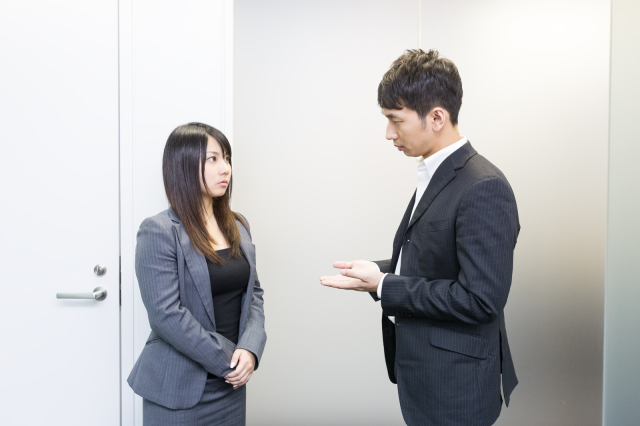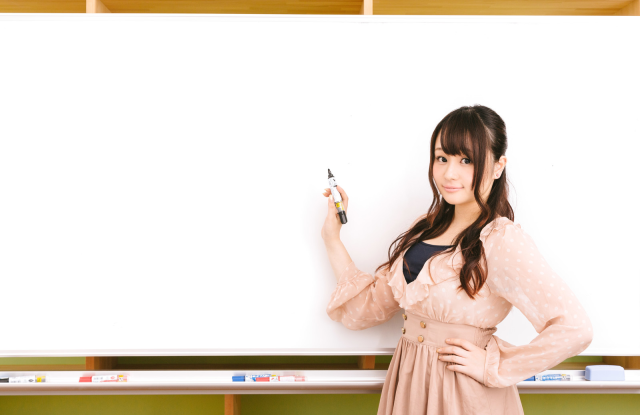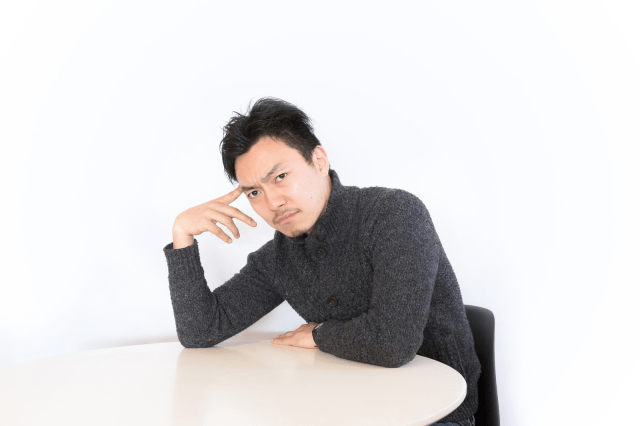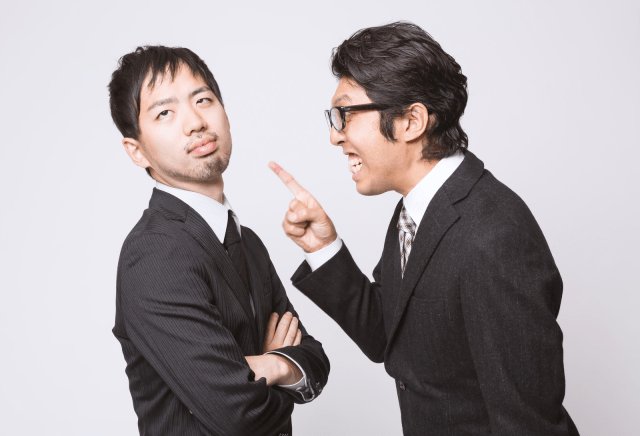
What’s obvious for some is far less so for others, and can lead to frustration when the listener doesn’t get the speaker’s message.
People who grew up overseas can sometimes find communication tricky in Japan, and not just because of the language barrier. Some would argue that the bigger challenge comes from how Japanese cultural norms influence personal interactions and perceptions, which can present hurdles no multilingual dictionary or grammar diagram can explain.
One person who’s been feeling the friction from this is conflict facilitator and career consultant Mia Daya. Though Daya was born in Sendai, capital of Japan’s northeastern Miyagi Prefecture, she spent her formative years in Switzerland, living in the European country from the age of 8 to 20.
Daya now resides in Tokyo, but being back in the land of her birth doesn’t mean she’s effortlessly transitioned to life in Japan. She recently took to Twitter to air some of her thoughts regarding a recurring problem that, even after 10 years living here, she still sometimes struggles with.
スイス育ちの私が日本育ちの人との議論で根本的にズレるのは、西洋では「人はみんな違うから確認と質問が不可欠。勝手に思い込むの失礼。」というのを前提に話をするけど、日本人は「普通こうでしょ。みんなこうでしょ。確認するのは信頼してないってこと!」と同じであることを前提に話すところ。
— daya@発売中「日常のなかのワールドワーク」 (@dayanow) November 28, 2018
“I was raised in Switzerland, and when I get into discussions with people raised in Japan, there’s a fundamental difference in how we debate. In the west, there’s the preexisting shared notion that ‘People are all different, so it’s absolutely essential to confirm your impressions and ask questions. Making assumptions is impolite.’ But in Japan, the attitude is ‘Everyone feels this way, so it’s normal. If you have to double-check about everything, it’s proof that you don’t trust the person!’”
As any expat who’s ever been criticized by a Japanese boss, teacher, host parent, or romantic partner can attest, one of the go-to phrases for expressing frustration in Japanese is a sputtering and rhetorical “Futsu desho?”, literally meaning “Isn’t that normal?” but carrying a weight closer to “Isn’t that obvious?” It’s something you can hear whether the source of critics’ displeasure is your failure to do something they think you should have or exasperation at your inability to perceive the unintended problems your actions have created for them.
▼ No need to draw someone a picture if the proper conduct is obvious, right?
It would be going too far to say that extensive double-checking is always seen as a lack of faith in Japan, but it’s safe to say that, on average, Japanese conversationalists are less likely to explicitly nail down every detail than their western counterparts are. Japanese society, starting at an early age, stresses the importance of thinking about other people’s feelings and circumstances. In its idealized form, the concept gets extended all the way to not only trying to provide for the needs or preferences of others, but to preemptively act in a way so that they won’t have to incur any self-placed guilt by directly stating what their problem is or asking you to accommodate them. And in a country where traditions and ceremony are so highly valued for their ability to create harmony, there’s often a surprisingly high chance of both people in the conversation having the same image of what counts as “normal” or “obvious” for a given topic. But as Daya points out, the success rate isn’t 100 percent, and when a message someone thinks should be “obvious” isn’t quickly conveyed to the listener, the aura of consideration and courteousness can break down pretty quickly.
伝わらないと相手の理解力の問題だとするのもよくある。
— daya@発売中「日常のなかのワールドワーク」 (@dayanow) November 28, 2018
あなたの伝え方かもしれないし両方かもしれない。
分かりあおうわかりたいと思えばまだ歩み寄れるし気持ちも変わるけど日本では議論は論破することがゴールだと思い込んでる人も少なくない。
おしゃべりは曖昧でフンワカしてて綿あめみたい。
“If someone’s words aren’t understood, they often blame the listener for not being smart enough to understand. But it could be that the speaker’s way of explaining is lacking, or some combination of both problems. As long as you both are committed to understanding one another, you can meet each other half-way, but in Japan a lot of people think that the end goal of a verbal disagreement is to beat the other person into submission.”
It stands to reason that if your opinion is “normal,” than whoever doesn’t grasp it immediately must be unreasonable, and if your take on things is the “obvious” one, it becomes hard to see the non-understanding party as anything other than dumb, and once those switches have been flipped in your head, the conversation isn’t likely to get much smoother. With Japan’s well-publicized reputation as a “conflict-averse” culture, though, some might disagree with Daya’s observation of people in Japan treating verbal disagreements as contests to be won. However, that very lack of experience in discussing conflicting opinions means that when the issue does somehow demand a resolution of some sort, the person you’re talking to might not be used to an assertive exchange of contrasting ideas, which can lead to aggressive debate tactics or a perception that any firm logical challenge is a personal attack.
Since moving back to Japan, Daya says she’s often had people say to her “Do I have to explain that much before you can understand?” and “Your way of communicating is pushy.” Still, she wants to make clear that she’s not trying to judge one style of communication as superior to another. Elsewhere in her thread, she expresses admiration for how Japanese communication encourages thinking of things from other people’s perspectives and allows that, for those who’ve spent their whole lives utilizing what they consider shared perceptions of what’s “normal,” the idea of having to constantly explain yourself must seem exhausting. “I think both styles are rich with possibilities,” she says.
And if this discussion of discussions in Japan has you rethinking your desire to travel to or live in the country, you should be aware that even many Japanese people share Daya’s frustrations, as Japanese Twitter users left comments including “I was born and raised in Japan, but even I don’t think it’s possible to understand everything about someone without asking questions, so I do,” and an exhausted “A lot of the older workers in my company always go off of assumptions about what they think is ‘obvious.’”
There’s also the fact that Daya, being of Japanese descent and a native Japanese-speaker, is more likely to have raised-in-Japan conversational partners who expect her to share their image of what’s “obvious.” People who, based on appearance or language, can be more easily perceived as having not grown up in Japan are probably more likely to have Japanese people explicitly express their ideas and ask questions, since there’s no shared cultural background.
But perhaps the most important thing to remember in all this is that Daya’s frustrations show that communication styles aren’t hard-coded into our ethnicities, but develop naturally as a product of our environments and experiences. As with any discussion of national character, it’s best to think of these traits as broad comparisons of the baselines between Japanese and western cultures, and to keep in mind that even within the same country, zooming in closer will reveal plenty of differences between regions, families, and other social groups. I grew up in the U.S., largely considered the most say-exactly-what-you-feel-all-the-time country on the planet, but it’s not like I never heard anyone grumbling “That goes without saying!” before I moved to Japan, and after arriving here on the other side of the Pacific, I’ve also met Japanese people who’re quite willing to lay their ideas out in the open during a debate.
So keep the baseline differences in mind, but as long as you remember to deal with people as individuals, you should be fine.
Sources: Twitter/@dayanow via Hachima Kiko, Changeconflict.com
Top image: Pakutaso
Insert images: Pakutaso (1, 2, 3)
Isn’t it obvious that you should follow Casey on Twitter?




 “I think I love you…”: Romantic confessions from around the world
“I think I love you…”: Romantic confessions from around the world The proper response when your wife says “I can’t make dinner tonight?” Japanese Twitter debates
The proper response when your wife says “I can’t make dinner tonight?” Japanese Twitter debates Five magic Japanese phrases to know before starting a job in Japan
Five magic Japanese phrases to know before starting a job in Japan Antinomy: Talking to Urbangarde about their vision, music, and lying to fans
Antinomy: Talking to Urbangarde about their vision, music, and lying to fans Math, art, and music: Sputniko! reimagines J-pop【J-Tunes】
Math, art, and music: Sputniko! reimagines J-pop【J-Tunes】 McDonald’s new Happy Meals offer up cute and practical Sanrio lifestyle goods
McDonald’s new Happy Meals offer up cute and practical Sanrio lifestyle goods All-you-can-drink Starbucks and amazing views part of Tokyo’s new 170 meter-high sky lounge
All-you-can-drink Starbucks and amazing views part of Tokyo’s new 170 meter-high sky lounge Studio Ghibli glasses cases let anime characters keep an eye on your spectacles
Studio Ghibli glasses cases let anime characters keep an eye on your spectacles Super Nintendo World expansion gets delayed for several months at Universal Studios Japan
Super Nintendo World expansion gets delayed for several months at Universal Studios Japan Starbucks reopens at Shibuya Scramble Crossing with new look and design concept
Starbucks reopens at Shibuya Scramble Crossing with new look and design concept Kyoto’s 100 Demons yokai monster parade returns!
Kyoto’s 100 Demons yokai monster parade returns! Hello Kitty/Yu-Gi-Oh crossover Happy Meal toys appear, but far, far away from Japan
Hello Kitty/Yu-Gi-Oh crossover Happy Meal toys appear, but far, far away from Japan A visit to the best UFO catcher arcade in the universe!
A visit to the best UFO catcher arcade in the universe! More foreign tourists than ever before in history visited Japan last month
More foreign tourists than ever before in history visited Japan last month Hey, Japanese taxi driver! Take us to your favorite restaurant in Tsuruga City!
Hey, Japanese taxi driver! Take us to your favorite restaurant in Tsuruga City! Disney princesses get official manga makeovers for Manga Princess Cafe opening in Tokyo
Disney princesses get official manga makeovers for Manga Princess Cafe opening in Tokyo Beautiful new Final Fantasy T-shirt collection on the way from Uniqlo【Photos】
Beautiful new Final Fantasy T-shirt collection on the way from Uniqlo【Photos】 Is the new Shinkansen Train Desk ticket worth it?
Is the new Shinkansen Train Desk ticket worth it? Foreign English teachers in Japan pick their favorite Japanese-language phrases【Survey】
Foreign English teachers in Japan pick their favorite Japanese-language phrases【Survey】 Japanese convenience store packs a whole bento into an onigiri rice ball
Japanese convenience store packs a whole bento into an onigiri rice ball We try out “Chan Ramen”, an underground type of ramen popular in the ramen community
We try out “Chan Ramen”, an underground type of ramen popular in the ramen community Studio Ghibli releases Kiki’s Delivery Service chocolate cake pouches in Japan
Studio Ghibli releases Kiki’s Delivery Service chocolate cake pouches in Japan Japan’s bone-breaking and record-breaking roller coaster is permanently shutting down
Japan’s bone-breaking and record-breaking roller coaster is permanently shutting down New definition of “Japanese whiskey” goes into effect to prevent fakes from fooling overseas buyers
New definition of “Japanese whiskey” goes into effect to prevent fakes from fooling overseas buyers Our Japanese reporter visits Costco in the U.S., finds super American and very Japanese things
Our Japanese reporter visits Costco in the U.S., finds super American and very Japanese things Studio Ghibli unveils Mother’s Day gift set that captures the love in My Neighbour Totoro
Studio Ghibli unveils Mother’s Day gift set that captures the love in My Neighbour Totoro Foreign passenger shoves conductor on one of the last full runs for Japan’s Thunderbird train
Foreign passenger shoves conductor on one of the last full runs for Japan’s Thunderbird train Domino’s Japan now sells…pizza ears?
Domino’s Japan now sells…pizza ears? New Japanese KitKat flavour stars Sanrio characters, including Hello Kitty
New Japanese KitKat flavour stars Sanrio characters, including Hello Kitty Kyoto creates new for-tourist buses to address overtourism with higher prices, faster rides
Kyoto creates new for-tourist buses to address overtourism with higher prices, faster rides Sales of Japan’s most convenient train ticket/shopping payment cards suspended indefinitely
Sales of Japan’s most convenient train ticket/shopping payment cards suspended indefinitely Sold-out Studio Ghibli desktop humidifiers are back so Totoro can help you through the dry season
Sold-out Studio Ghibli desktop humidifiers are back so Totoro can help you through the dry season Japanese government to make first change to romanization spelling rules since the 1950s
Japanese government to make first change to romanization spelling rules since the 1950s Ghibli founders Toshio Suzuki and Hayao Miyazaki contribute to Japanese whisky Totoro label design
Ghibli founders Toshio Suzuki and Hayao Miyazaki contribute to Japanese whisky Totoro label design Doraemon found buried at sea as scene from 1993 anime becomes real life【Photos】
Doraemon found buried at sea as scene from 1993 anime becomes real life【Photos】 Tokyo’s most famous Starbucks is closed
Tokyo’s most famous Starbucks is closed One Piece characters’ nationalities revealed, but fans have mixed opinions
One Piece characters’ nationalities revealed, but fans have mixed opinions We asked a Uniqlo employee what four things we should buy and their suggestions didn’t disappoint
We asked a Uniqlo employee what four things we should buy and their suggestions didn’t disappoint Princesses, fruits, and blacksmiths: Study reveals the 30 most unusual family names in Japan
Princesses, fruits, and blacksmiths: Study reveals the 30 most unusual family names in Japan Blogger offers her top four tips for Japanese women dating foreign guys
Blogger offers her top four tips for Japanese women dating foreign guys Nearly one in four Japanese adults admits to crying in the office bathroom in new survey
Nearly one in four Japanese adults admits to crying in the office bathroom in new survey In Kyoto, “Hey, you’ve got a really nice watch” is NOT a compliment, Japanese businessman says
In Kyoto, “Hey, you’ve got a really nice watch” is NOT a compliment, Japanese businessman says Blink and you’ll miss what riled racists in this Japanese McDonald’s ad 【Video】
Blink and you’ll miss what riled racists in this Japanese McDonald’s ad 【Video】 Japanese idol singer who was attacked at home makes on-stage apology for “causing commotion”
Japanese idol singer who was attacked at home makes on-stage apology for “causing commotion” Japanese Tumblr user drops hammer on debate of if Caucasian girl’s Japan-themed party was racist
Japanese Tumblr user drops hammer on debate of if Caucasian girl’s Japan-themed party was racist Over 30 percent of surveyed Japanese managers feel intense stress from working with foreigners
Over 30 percent of surveyed Japanese managers feel intense stress from working with foreigners English conversation school in Japan has clever reminder that students don’t have to be perfect
English conversation school in Japan has clever reminder that students don’t have to be perfect Japanese teacher simply asks to be treated like a human being
Japanese teacher simply asks to be treated like a human being Japanese advice columnist shuts down mother who doesn’t want to give son permission to marry
Japanese advice columnist shuts down mother who doesn’t want to give son permission to marry Japanese woman stumbles on the power of the infamous “gaijin seat” phenomenon during flight
Japanese woman stumbles on the power of the infamous “gaijin seat” phenomenon during flight RocketNews24’s six top tips for learning Japanese
RocketNews24’s six top tips for learning Japanese 6 surprising things about having a baby in Japan
6 surprising things about having a baby in Japan
Leave a Reply